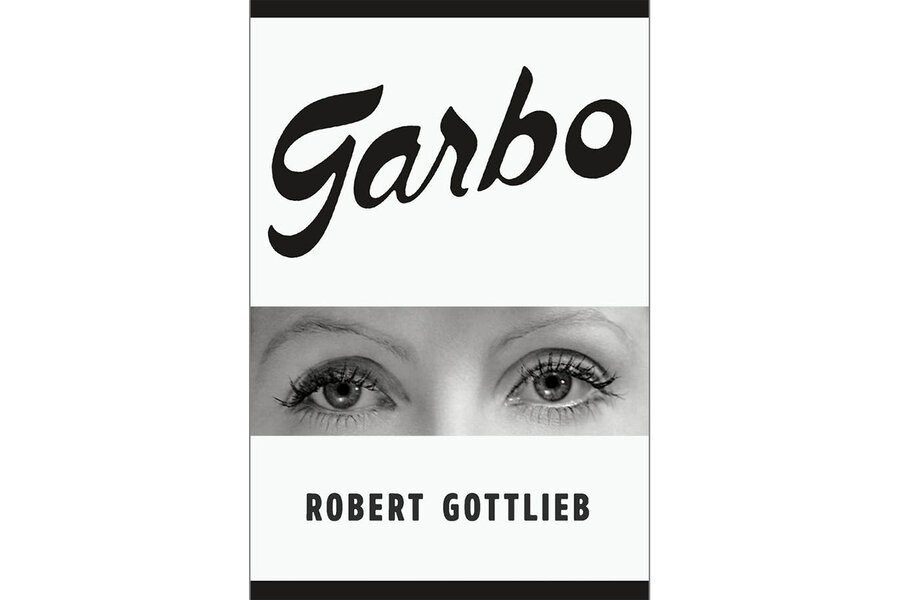Greta Garbo gave up stardom. A biographer explores why.
Early in her film career, Greta Garbo wrote to a friend, “All I want is to run away…. one day I will make a scandal and leave everything.” Famously, of course, she eventually did. After 16 years in Hollywood, during which she starred in 24 movies, she retreated from the public eye at age 36 and never worked again.
Robert Gottlieb’s new biography, “Garbo,” helps elucidate the mystery of why his subject removed herself from the world. Happily, too, the book is great fun to read (and, with more than 250 photographs, gorgeous to look at). Gottlieb, the renowned former head of publishers Simon & Schuster and Alfred A. Knopf and the former editor-in-chief of The New Yorker, has an easygoing command of the material and describes Garbo’s films, and the business behind them, with insight and wit.
The book begins with Garbo’s childhood in Sweden, where she was born Greta Gustafsson in 1905. As a child she was very poor and very shy. She never attended high school, which would result in a lasting feeling of inferiority, Gottlieb explains, but she always knew she wanted to be an actress. As a teenager she met famed Swedish director Mauritz Stiller, who, according to the author, “had been looking for a beautiful girl whom he could completely mold.” After making a movie in Sweden together, they were invited to Hollywood to sign with Metro-Goldwyn-Mayer. It is likely Stiller who chose Garbo’s stage name.
Garbo’s third Hollywood film, the 1926 hit “Flesh and the Devil,” made her, Gottlieb writes, “the leading actress of the cinema, a position she never relinquished.” But Garbo was immediately uncomfortable with fame, a discomfort that would harden into a deep aversion. Besides being uneducated, she spoke little English in those early years, making her feel even more out of place.
She was compelled to brush up on her language skills to make the transition from silent films to speaking roles. Audiences had been so anxious to hear Garbo in her first movie with sound, 1930’s “Anna Christie,” that one news article called hers “the voice that shook the world.” The movie, whose iconic publicity campaign exclaimed “Garbo Talks!,” was the top grosser of the year.
Gottlieb has a breezy yet authoritative way of describing Garbo’s oeuvre. Of “Grand Hotel,” the 1932 film in which she utters her most famous – and prescient – line, “I want to be alone,” he writes, “Is ‘Grand Hotel’ a great movie? No, but it’s a dazzling one, and the world was dazzled.” Of one of her stinkers, 1931’s “Susan Lenox (Her Fall and Rise”), he notes that more than 20 writers “put together” the script, adding drily, “the word ‘write’ somehow seems inappropriate here.”
The author laments that Garbo was often ill-served by her material, regularly cast as the sultry vamp or the tragedy queen. Her first comedy was her second-to-last movie, 1939’s “Ninotchka,” directed by Ernst Lubitsch (promotional tagline: “Garbo laughs!”). The response was “ecstatic,” writes Gottlieb, who believes the star could have been one of the great romantic comedians of Hollywood’s golden age.
Given the mystique surrounding Garbo, it’s unsurprising that Gottlieb occasionally finds himself relating stories that remain unconfirmed. He writes that when the beloved producer Irving Thalberg died suddenly at age 37, “Garbo herself was moved enough by Thalberg’s death to actually attend his funeral, the kind of thing she almost never did. (Unless she didn’t: Reports vary.)” One would rather not believe in the piece of Hollywood lore that has her refusing to sign an autograph for an injured World War II veteran in uniform, but Gottlieb seems to find the story credible.
In the end the many unreliable accounts don’t detract from the forcefulness of the author’s portrayal. He presents a Garbo who was beautiful and glamorous, of course, but also needy, imperious, and ungenerous. “She used people ruthlessly,” Gottlieb asserts, “but people wanted to be used by her.” Perhaps saddest of all, according to the author, she was dull. An assistant who worked for Garbo when she was in her 60s recorded some of their conversations, and Gottlieb reports that he listened to the tapes “until I was so bored I couldn’t bear to go on listening.”
And yet. “More than any other star,” Gottlieb contends, “she invaded the subconscious of the audience.” Her luminous beauty in part explains her effect, but so too does the enduring enigma of Garbo, who died in 1990 at age 84. Nowadays, in the social media age, celebrity oversharing is the norm. By withholding herself, Gottlieb suggests, Garbo moved beyond legend status into something like myth.






